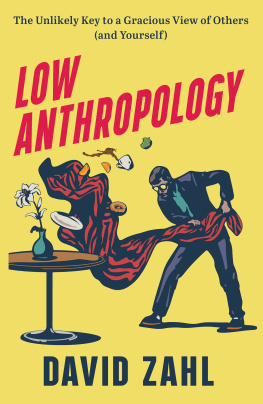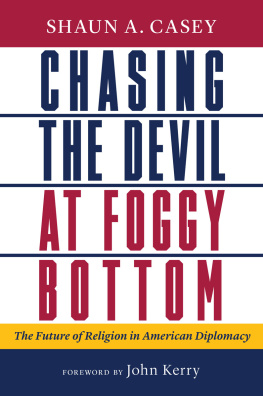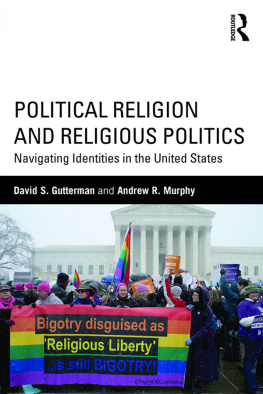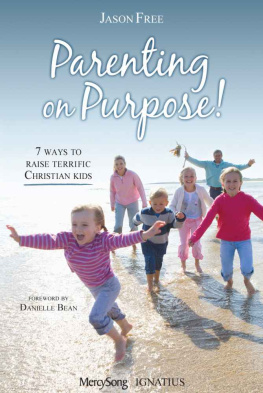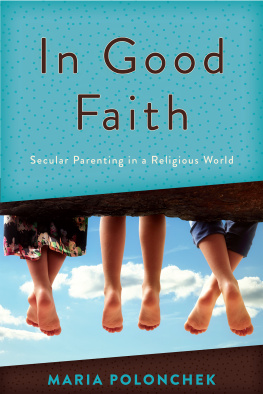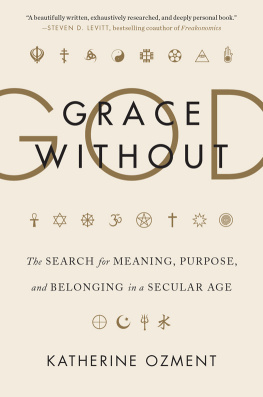How Career, Parenting, Technology, Food, Politics, and Romance Became Our New Religion and What to Do about It
Copyright David Zahl. Published 2019 by Fortress Press, an imprint of 1517 Media. All rights reserved. Except for brief quotations in critical articles or reviews, no part of this book may be reproduced in any manner without prior written permission from the publisher. Email copyright@1517.media or write to Permissions, Fortress Press, PO Box 1209, Minneapolis, MN 55440-1209.
The paper used in this publication meets the minimum requirements of American National Standard for Information Sciences Permanence of Paper for Printed Library Materials, ANSI Z329.48-1984.
Manufactured in the U.S.A.
Ill give you one clue, Sherry said, baiting me to guess where she and her family were moving. Its a place where no ones religious but everyone is super religious.
That doesnt exactly narrow it down, I responded, trying to match her cynicism.
She smiled, but I knew she wasnt making the observation lightly. Sherry had grown up in the sort of strict religious household about which prestige dramas are made. The more you learned about her childhood, the more miraculous it became that she maintained any faith at all.
As a result, she could smell piety in the air like pizza. It was her superpower. Theres nothing quite like the anxiety of the devout, she would tell me, or the kind of shame thats marshalled in defense of orthodoxy.
I remember asking her once why she wasnt angrier. It seemed to me that Sherry had every reason to hate religion and anyone associated with it. Her answer has stayed with me: she told me that one of the great wake-up calls of adulthood came when she realized that religiosity was not confined to churchgoers or those who checked the belief box in the latest Pew survey. In fact, for those whod had a particularly heavy dose in their formative years, it was hard not to see religiosityand its fallouteverywhere.
It wasnt the first time I had heard this. Tales of friends whod left small towns for big cities in search of a more open-minded environment, only to discover that their new surroundings werent as orthodoxy-free as theyd hoped, had become almost clich. It sounds like a Portlandia sketch, but it is empirically true: the religious impulse is easier to rebrand than to extinguish.
This runs counter to popular perception. Bombarded with poll results about declining levels of church attendance and belief in God, we assume that more and more people are abandoning faith and making their own meaning. But what these polls actually tell us is more straightforward. They tell us that confidence in the religious narratives weve inherited has collapsed. What they fail to report is that the marketplace in replacement religion is booming. We may be sleeping in on Sunday mornings in greater numbers, but weve never been more pious. Religious observance hasnt faded apace secularization so much as migratedand weve got the anxiety to prove it. Were seldom not in church.
Thats a bold assertion to make, I know, and one that depends greatly on your definition of religion. If youre going with the common conceptionof robes and kneeling and the Man Upstairs, what we might call capital-R Religionthen, yes, people are bailing in unprecedented numbers.
Some say this has to do with science, some with capitalism, or moralism, or distraction, or indifference, or whatever. The roots of so-called secularization arent that important, at least not for the purposes of this book. Whats important is that its happening and will in all likelihood continue to.
The landscape shifts, however, if you opt for a more expansive view of religion. For instance, as sanctuaries in Europe have emptied, folkloric beliefs have thrived. A majority of Icelanders claim to believe in hidden creatures like elves and about a third of Austrians in lucky charms (not the cereal). Half of Sweden gives credence to mental telepathy. According to AppStore downloads, millennials in the United States are increasingly enamored of astrology.
Tempting as occult belief systems such as these may be, this book sets out to look at how the promise of salvation has fastened onto more everyday pursuits like work, exercise, and romanceand how its making us anxious, lonely, and unhappy.
Perhaps a more helpful definition of religion comes from writer David Dark. He calls it a controlling story or the question of how we dispose our energies, how we see fit to organize our own lives and, in many cases, the lives of others.
According to this definition, religion is not merely that which explains the inexplicable but the lens through which you sort the data of your days, rank your priorities, and focus your desires. Well call this small-r religion. A persons religion is shorthand for the shape that lens takesnamely, the specific ways it refracts what we see and directs our longings. This can be a set of unconscious assumptions about the world, or it can be a perspective thats deliberately adopted, like an -ism of some kind. Most often, its both.
While a solid starting point, I wonder if Darks definition veers a tad too close to that dreaded term worldview. Because religion in real life is more than a filter or paradigm. It is what we lean on to tell us were okay, that our lives matter, another name for all the ladders we spend our days climbing toward a dream of wholeness. It refers to our preferred guilt-management system. Our small-r religion is the justifying story of our life. Ritual and community and all the other stuff come second.
A conventional person of faith would likely insert something here about religion having to do with worship. They would have a point. But worship is such a tricky word. It carries a judgment that makes it awkward to use when most applicable. It can imply a certain servility or weak-mindedness. More than that, most talk of worship tends to frame it as a conscious pursuit, suggesting that life is simply a matter of finding the right thing to worship and doing so, rather than the continued frustration of venerating the wrong thing(s), despite knowing better. Furthermore, we fail to recognize that what were actually worshipping when we obsess over food or money or politics is not the thing itself but how that thing makes us feelif only for a moment.
Our religion is that which we rely on not just for meaning or hope but enoughness.
Enoughs Enough?
Listen carefully and youll hear that word enough everywhere, especially when it comes to the anxiety, loneliness, exhaustion, and division that plague our moment to such tragic proportions. Youll hear about people scrambling to be successful enough, happy enough, thin enough, wealthy enough, influential enough, desired enough, charitable enough, woke enough,


